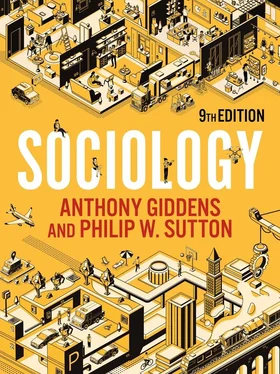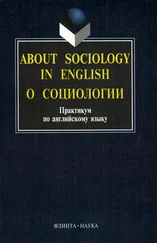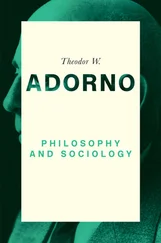It also illustrates, in microcosm, how the global and the local interact through contemporary social media. Kuwaiti culture is not likely to be easily transformed by simple exposure to different beliefs and values online. The fact that young people participate in potentially global chatrooms and on social media does not mean that Kuwaiti culture will inevitably adopt the sexual attitudes or stances on gender of the West. The culture that eventually emerges from this process of glocalization is likely to remain recognizably Kuwaiti.
Although globalization is often associated with macro changes in world markets, production and trade, and telecommunications, the effects of globalization are also felt in the private realm. Globalization is not something that is simply ‘out there’; it is also ‘in here’, affecting people’s intimate and personal lives in diverse ways. Inevitably, personal lives have been altered as globalizing forces enter local contexts, homes and communities through impersonal sources – such as the media and popular culture – and through personal contact with people from other countries.
Today people have much more opportunity to shape their own lives than in the past, when the main influences were tradition and custom. Social class, gender, ethnicity and even religious affiliation could close off some life avenues and open up others. In the past, being born the eldest son of a tailor, for example, would probably ensure a young man would learn his father’s craft and practise it throughout his lifetime. Tradition held that a woman’s natural place was in the home, with her life and identity defined largely by those of her husband or father. Personal identities were formed within the context of the community into which people were born, and the values, lifestyles and ethics of the community provided a relatively fixed guide for life.
Classic studies 4.2 Anthony Giddens: riding the juggernaut of modernity
The research problem
What impact is globalization likely to have on people’s everyday lives? How will globalization change the modern world that we all increasingly inhabit? In a series of books, articles and lectures since the early 1990s, Anthony Giddens has tried to explore the characteristics of the emerging global form of modernity and its consequences for everyday life (1991a, 1991b, 1993, 2001). In particular, he has been interested in the decline of tradition, our increasing risk awareness and the changing nature of trust in relationships.
In The Consequences of Modernity (1991b), Giddens outlined his view that the global spread of modernity tends to produce a ‘runaway world’ in which, it appears, no one and no government is in overall control. While Marx used the image of a monster to describe capitalist modernity, Giddens (ibid.: 139) likens it to riding on board a large truck:
I suggest we should substitute that of the juggernaut – a runaway engine of enormous power, which, collectively as human beings, we can drive to some extent but which also threatens to rush out of our control and which could rend itself asunder. The juggernaut crushes those who resist it, and while it sometimes seems to have a steady path, there are times when it veers away erratically in directions we cannot foresee. The ride is by no means unpleasant or unrewarding; it can often be exhilarating and charged with hopeful anticipation. But, as long as the institutions of modernity endure, we shall never be able to control completely either the path or the pace of the journey.
The globalizing form of modernity is marked by new uncertainties, risks and changes to people’s trust in others and social institutions. In a world of rapid change, traditional forms of trust are dissolved. Our trust in other people used to be based in local communities, but in globalized societies our lives are influenced by people we never meet or know, who may live on the far side of the world from us. Such impersonal relationships mean we are pushed to ‘trust’ or have confidence in ‘abstract systems’, such as food production, environmental regulation agencies or international banking systems. In this way, trust and risk are closely bound together. Trust in authorities is necessary if we are to confront the risks around us and react to them in an effective way. However, this type of trust is not habitually given but is the subject of reflection and revision.
When societies were more reliant on knowledge gained from custom and tradition, people could follow established ways of doing things without much reflection. For modern people, aspects of life that earlier generations were able to take for granted become matters of open decision-making, producing what Giddens calls ‘reflexivity’ – the continuous reflection on our everyday actions and the re-formation of these in the light of new knowledge. For example, whether to marry (or divorce) is a very personal decision, which may take account of the advice of family and friends. But official statistics and sociological research on marriage and divorce also filter into social life, becoming widely known and shared, thus becoming part of an individual’s decision-making.
For Giddens, these characteristic features point to the conclusion that global modernity is a form of social life that is discontinuous with previous ones. In many ways, the globalization of modernity marks not the end of modern societies or a movement beyond them (as in post modernism – see chapter 3) but a new stage of ‘late’ or ‘high’ modernity which takes the tendencies embedded within modern life into a more far-reaching global phase.
Giddens’s critics argue that perhaps he exaggerates the discontinuity between modernity and previous societies and that tradition and habit continue to structure people’s everyday activities. The modern period is not so unique, they say, and modern people are not so different from those who went before. Others think that his account of globalizing modernity underplays the central sociological question of power – in particular that of transnational corporations to promote a form of globalization that privileges their needs at the expense of the world’s poor. The concept of ‘modernity’ essentially masks the power of capitalist corporations.
Some critics also argue that Giddens sees reflexivity in almost wholly positive terms, reflecting the opening up of social life to more choice. However, such reflexivity could also be leading to heightened levels of ‘anomie’, as described by Durkheim, and, in that sense, reflexivity may be more of a problem to be solved than a welcome development to be promoted.
Contemporary significance
Because theories of globalization are relatively recent and Giddens continues to develop his theories of modern life, these constitute very much a ‘work in progress’. The ideas he has developed have been taken in fruitful directions by other sociologists, and, in that sense, he has provided a theoretical framework and some conceptual tools for younger generations to take forward. As is evident from the contribution of the critics of his work on modernity, reflexivity and trust relationships, this has provoked much sociological debate. No doubt it will continue to do so in the future and readers will come to their own assessment of it.
Under conditions of globalization, people are faced with a new individualism , in which they actively construct their own identities. The social codes that previously guided people’s choices and activities have significantly loosened. That eldest son of a tailor could now choose numerous paths to construct his future, and women are no longer restricted to the domestic realm. Girls do better than boys in most school subjects, women make up a majority of students in higher education, and more women work in the formal economy than before the 1960s and 1970s, often in jobs with attractive career paths. The social norms that guided an older generation’s gendered expectations are no longer appropriate for the lives of their children as norms continue to change.
Читать дальше












